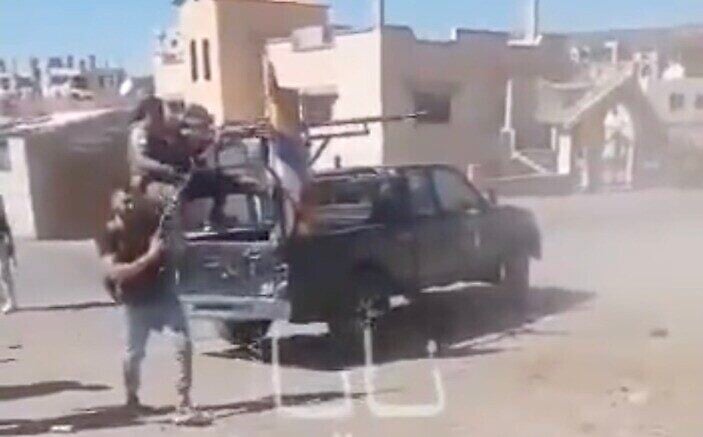



Clashes between Bedouin tribes and local fighters in the predominantly Druze city of Sweida in southern Syria have killed 37 people, a war monitor said Monday, as authorities sent forces to de-escalate the situation.
The clashes are the first outbreak of deadly violence in the area since fighting between members of the Druze community and the security forces killed dozens of people in April and May.
The Syrian Observatory for Human Rights said at least 37 people had been killed, 27 of them Druze, including two children, and 10 of them Bedouin.
It also reported the closure of the Damascus-Sweida highway due to the violence.
Syria’s interior ministry put the toll at “more than 30 deaths and nearly 100 injuries” and said it would deploy troops in coordination with the defense ministry.
Those troops “will begin direct intervention in the area to resolve the conflict, stop the clashes, impose security, pursue those responsible for the incidents, and refer them to the competent judiciary,” an interior ministry statement said.
The Syrian state-run media outlet SANA earlier said the security forces had deployed on the administrative borders between Daraa and Sweida provinces in light of the situation.
Sweida Governor Mustapha al-Bakur called on his constituents to “exercise self-restraint and respond to national calls for reform.”
Several Syrian Druze spiritual leaders also called for calm and asked Damascus to intervene.
Syria’s pre-civil war Druze population numbered around 700,000, with Sweida province home to the sect’s largest community.
Bedouin and Druze factions have a longstanding feud in Sweida, and violence occasionally erupts between the two.
The interior ministry said the violence was “the result of unfortunate armed clashes that broke out between local military groups and clans… against a backdrop of accumulated tensions over previous periods.”
Since the overthrow of longtime Syrian ruler Bashar al-Assad, concerns have been raised over the rights and safety of minorities under the new Islamist authorities, who have also struggled to re-establish security more broadly.
Clashes between the new security forces and Druze fighters in April and May killed dozens of people, with local leaders and religious figures signing agreements to contain the escalation and better integrate Druze fighters into the new government.
During those clashes, Israel carried out a drone strike on an armed group preparing to attack a Druze community near Damascus, and Defense Minister Israel Katz told troops to be prepared to act in Syria in defense of the Druze. Katz and Prime Minister Benjamin Netanyahu said in a message to Syria at the time that Israel “expects it to act to prevent harm to the Druze.” At the time, an IDF helicopter also ferried humanitarian aid to Syrian Druze in the Sweida area.
Israel is home to some 150,000 Druze and has vowed to protect their “brothers” in Syria.
Following the December overthrow of Assad, Syria’s longtime ruler, Israel sent troops into the United Nations-patrolled buffer zone that separated opposing forces on the strategic Golan Heights, from which it had conducted forays into southern Syria.
Immediately after Assad’s ouster, Israel also carried out hundreds of airstrikes in Syria to prevent key military assets from coming under the control of the new administration.
